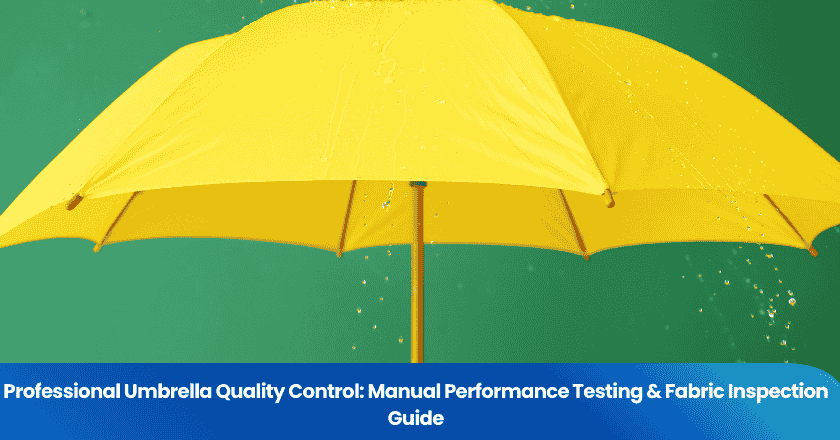
Choosing a quality assurance services company can significantly impact software development outcomes. Leaders often assess if their internal team holds the necessary qa expertise or if outsourcing provides better value. Many organizations turn to qa outsourcing when project requirements exceed available skills or resources. Outsourcing qa allows teams to align quality assurance with core business goals. Before selecting a qa partner, decision-makers should clarify what they hope to achieve through outsourcing and how it fits into their overall strategy.
Key Factors
Project Complexity
Project complexity shapes the entire qa approach. Complex software development projects often require advanced testing strategies. A quality assurance services company brings specialized skills to handle intricate scenarios. When teams face multiple integrations or unique user flows, external qa engineers can design a robust testing process. This support reduces the risk of missed defects and strengthens risk management.
In-House Skills
Teams must evaluate their in-house qa engineer capabilities. Some organizations have strong in-house testing teams, while others lack experience with certain testing tools or methods. When in-house resources cannot meet software development needs, outsourcing qa becomes a practical solution. External qa engineers can fill skill gaps and introduce new testing techniques. This collaboration ensures the qa process meets industry standards.
Budget
Budget constraints influence every decision. In-house qa teams require ongoing investment in training, tools, and salaries. Outsourcing qa can lower costs by providing access to experienced qa engineers without long-term commitments. Companies should compare the total cost of in-house testing with the fees charged by a quality assurance services company. Effective risk management includes balancing quality with financial limits.
Timeline
Project timelines often drive the need for external support. In-house qa engineers may struggle to meet tight deadlines during peak periods. A quality assurance services company can scale resources quickly, ensuring the testing process stays on track. Faster testing cycles help teams deliver products on schedule and respond to market demands.
Industry Standards
Meeting industry standards is essential for product credibility. In-house qa engineers must stay updated on the latest compliance requirements. External qa experts often bring experience from multiple industries, helping teams align their testing process with best practices. This expertise supports risk management and ensures the final product meets customer expectations.
Tip: Assess in-house qa capabilities honestly before deciding to outsource. The right balance between internal and external resources leads to better testing outcomes.
Pros of QA Outsourcing
Expertise in Testing
A quality assurance services company brings deep expertise to every project. Their specialists have experience with a wide range of testing tools and methodologies. They understand how to design effective automated tests and manual test cases. Many qa engineers have backgrounds in performance testing, security testing, and usability analysis. This expertise helps teams identify issues early and improve the overall performance of their products. When organizations choose qa outsourcing, they gain access to a pool of specialists who stay updated on the latest trends in software testing. These experts can handle complex scenarios that might challenge an in-house team.
Better Product Quality
Outsourcing qa often leads to higher product quality. External specialists follow strict testing protocols and industry best practices. They use automated tests to cover repetitive tasks and manual testing for unique user flows. This approach ensures that every feature meets quality standards before release. A dedicated qa engineer can focus on finding defects and improving performance, which reduces the risk of post-launch issues. Consistent qa efforts help build customer trust and reliability. When users encounter fewer bugs, they develop confidence in the product.
Flexible Scaling
Project needs can change quickly. Sometimes, a team must ramp up testing efforts to meet tight deadlines or handle new features. Qa outsourcing offers flexibility by allowing organizations to scale resources up or down as needed. A quality assurance services company can provide additional qa engineers during peak periods. When demand drops, the team can reduce its size without long-term commitments. This flexibility helps companies manage costs and maintain steady performance. Automated tests also make it easier to adapt the testing process as the project evolves.
Cost Savings
Many organizations choose qa outsourcing to control expenses. Building an in-house qa team requires investment in hiring, training, and tools. Outsourcing shifts these costs to the service provider. Companies pay only for the services they need, which makes budgeting easier. The cost of qa outsourcing often proves lower than maintaining a full-time team. Specialists bring their own equipment and licenses, reducing overhead. Automated tests further cut costs by speeding up the testing process and minimizing manual effort. This approach allows businesses to allocate resources to other critical areas.
Focus on Core Tasks
When a company outsources qa, its internal team can focus on core business activities. Developers and product managers spend less time on testing and more time on innovation. A dedicated qa engineer handles the testing process, freeing up valuable resources. This division of labor improves overall performance and productivity. Specialists manage automated tests, performance testing, and defect tracking, so internal teams can concentrate on strategic goals. Outsourcing also reduces the risk of burnout among staff, as they no longer need to juggle multiple roles.
Note: Outsourcing quality assurance not only improves product quality but also enhances customer satisfaction. Reliable testing builds trust and supports long-term business growth.
Cons of QA Outsourcing
Communication Barriers
Communication often presents a major challenge in qa outsourcing. Teams may work in different time zones, which can slow down feedback and decision-making. Language differences sometimes lead to misunderstandings about requirements or test results. Cultural differences may also affect how teams approach problem-solving or escalate issues. When a company works with an external vendor, it must establish clear communication channels. Regular meetings, detailed documentation, and defined points of contact help reduce confusion. Without these measures, the qa process can suffer delays or errors.
Tip: Clear requirements and open communication channels help prevent misunderstandings during qa outsourcing.
Security Concerns
Security remains a top priority in any qa process. When a company shares sensitive data with an external vendor, it faces new risks. Data breaches or leaks can damage a company’s reputation and lead to legal problems. Some external vendors may not follow the same security protocols as the client’s internal team. Companies must review the vendor’s security policies before starting the outsourcing relationship. They should also limit data access to only what the qa team needs. Regular audits and compliance checks support strong risk management and protect valuable information.
Less Process Control
Outsourcing qa often means giving up some control over the testing process. The external vendor may use different tools, workflows, or reporting methods. This can make it harder for the client to monitor progress or enforce standards. Changes in project scope or priorities may not reach the qa team quickly. Companies must set clear expectations and request regular updates from the vendor. Detailed service agreements help define roles and responsibilities. Without strong oversight, the qa process may drift away from the company’s goals.
Onboarding Delays
Onboarding an external vendor takes time. The new qa team must learn about the product, business goals, and existing workflows. This learning curve can delay the start of testing activities. If the vendor does not receive enough information, the qa process may face repeated questions or mistakes. Companies should prepare detailed documentation and training materials before onboarding begins. Early investment in knowledge transfer speeds up the process and reduces future delays.
• Prepare onboarding checklists
• Share product documentation
• Schedule training sessions
These steps help the external vendor become productive faster.
Hidden Costs
Hidden costs sometimes appear during qa outsourcing. The initial contract may not cover all services, such as extra test cycles or new tool licenses. Scope changes or urgent requests can lead to additional fees. Travel expenses or overtime charges may also increase the total cost. Companies should review contracts carefully and ask for a detailed breakdown of all possible charges. Regular budget reviews help avoid surprises and keep the qa process on track.
Note: A transparent agreement with the external vendor helps manage costs and supports a smooth outsourcing experience.
Choosing a Quality Assurance Services Company
Experience & Reputation
A quality assurance services company with a strong track record stands out in the industry. Decision-makers should look for teams that have handled projects similar in size and complexity. Experienced qa engineers bring valuable insights and can adapt quickly to new challenges. Reputation matters because it reflects reliability and consistent results. Checking online reviews and industry awards helps verify a company's standing. Teams with proven experience often deliver better qa outcomes.
Case Studies & References
Case studies show how a quality assurance services company approaches real-world problems. These documents highlight the qa process, challenges faced, and solutions provided. Reviewing case studies helps organizations understand if the company can meet specific needs. References from past clients add another layer of trust. Speaking directly with previous customers gives insight into the company's communication style and the effectiveness of its qa engineer team.
Tip: Always request detailed case studies and contact references before making a final decision.
Service Range
A broad service range allows a company to address different qa needs. Some projects require only manual testing, while others need automated tests or performance analysis. A quality assurance services company should offer services like functional testing, security assessments, and usability reviews. Teams benefit from a partner that can scale services as requirements change. This flexibility supports both short-term and long-term goals.
Communication Clarity
Clear communication ensures the qa process runs smoothly. Teams should evaluate how the company shares updates, reports issues, and responds to feedback. Regular meetings and transparent reporting help prevent misunderstandings. A dedicated point of contact simplifies coordination between in-house staff and external qa engineers. Good communication builds trust and keeps projects on track.
Compliance Checks
Compliance with industry standards protects both the product and the business. A reliable qa engineer understands regulations relevant to the project. The company should demonstrate knowledge of data privacy laws and security protocols. Regular compliance checks reduce risk and ensure the qa process aligns with legal requirements. In-house teams should verify that the partner follows best practices at every stage.
| Evaluation Criteria | What to Look For |
|---|---|
| Experience & Reputation | Proven track record, reviews |
| Case Studies & References | Real-world examples, client feedback |
| Service Range | Manual, automated, performance |
| Communication Clarity | Regular updates, clear reports |
| Compliance Checks | Knowledge of standards, audits |
Selecting a quality assurance services company involves careful consideration of project needs, internal skills, budget, and industry standards. Outsourcing offers expertise, flexibility, and cost savings, but also brings challenges like communication barriers and onboarding delays. Decision-makers should weigh these factors before moving forward.
A practical checklist helps guide the final decision:
Review business goals and project requirements
Compare internal and external capabilities
Assess potential partners using clear criteria
Revisit objectives to ensure the chosen approach aligns with long-term success.
FAQ
What types of projects benefit most from QA outsourcing?
Projects with tight deadlines, complex integrations, or limited in-house expertise often benefit most. Outsourcing suits teams that need specialized testing skills or want to scale resources quickly.
How can a company ensure data security when outsourcing QA?
A company should review the vendor’s security protocols, limit data access, and require regular audits. Clear agreements and compliance checks help protect sensitive information throughout the QA process.
What is the typical onboarding process for an external QA team?
The onboarding process usually includes sharing product documentation, conducting training sessions, and setting up communication channels. Early knowledge transfer helps the external team become productive faster.
How does QA outsourcing impact project timelines?
QA outsourcing can speed up testing cycles by providing additional resources. However, initial onboarding may cause short delays. Clear planning and communication help minimize any impact on delivery schedules.
What should a company look for in a quality assurance services partner?
Companies should evaluate experience, service range, communication clarity, and compliance knowledge. Reviewing case studies and client references provides insight into the partner’s reliability and expertise.
Grow your business with TradeAider Service
Click the button below to directly enter the TradeAider Service System. The simple steps from booking and payment to receiving reports are easy to operate.





